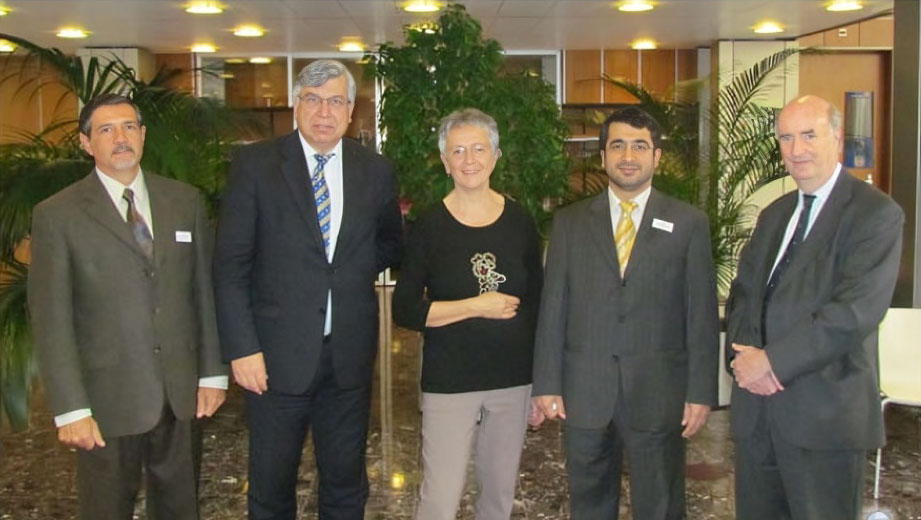
The Bureau of the Commission: Col. Hugo C. Corujo Sanseviero (Uruguay), Prof. Stelios Perrakis (Greece), Dr. Gisela Perren-Klingler (Switzerland), Dr. Mohamed Mahmoud Al Kamali (United Arab Emirates), Prof. Charles Garraway (United Kingdom)
The International Humanitarian Fact-finding Commission (IHFFC) held its annual meeting on 2 to 4 April in Geneva.
During this meeting, the members also elected by acclamation Prof. Jeannette Irigoin Barrenne (Chile) in order to replace the former Prof. Miodrag Starcevic, who sadly passed away only recently.
This was the first meeting of the IHFFC members since their election, held last December, by the 72 States parties to the First Protocol additional to the Geneva Conventions that have recognised the Commission's competence. The IHFFC has the task to enquire on demand of a third party into any fact allegedly constituting a grave breach of international humanitarian law. It also has the competence to facilitate, through its good offices, the return to a situation of respect of the Conventions and the Protocols.
The IHFFC is composed of 15 members, among them experts of international humanitarian law, medical doctors and military officers. It is lead by a bureau, composed of Dr. Med. Gisela Perren-Klingler (Switzerland), President; Dr. Iur. Mohamed Mahmoud Al Kamali (United Arab Emirates), 1st Vice-President; Col. Hugo Corujo Sanseviero (Uruguay), 2nd Vice-President; Col. Charles Garraway (United Kingdom), 3rd Vice-President and Prof. Stelios Perrakis, (Greece), 4th Vice-President.
The Commission has created three working groups which will focus on (1) early warning procedures, (2) the preparedness of the Commission and (3) its promotional material. Further, the commission decided to look into the establishment of a "Group of Friends of the IHFFC”. This would be an important step and the Commission is willing and looking forward to enhance this type of cooperation. The Commission is looking forward to further enhance the dialogue between the Commission and States and other institutions in this regard. For fulfilling its mission and for taking concrete steps to obtain mandates, the Commission has to rely on the continued support of the States which have created it and have accepted its competence. Such support has, among other reasons, led the Commission to be granted the observer status at the UN. The Commission will fully enjoy this status in the following years and will remain active in the UN sphere. The members of the commission will also make use of their network and experience for outreach purposes.